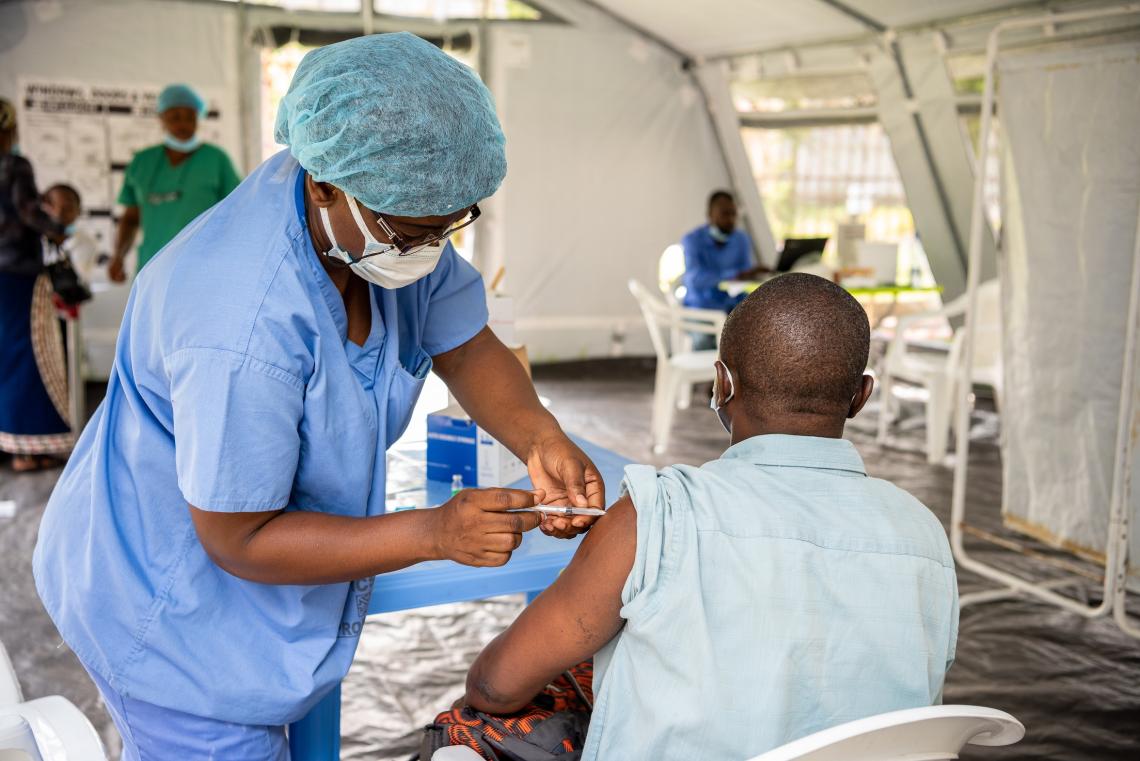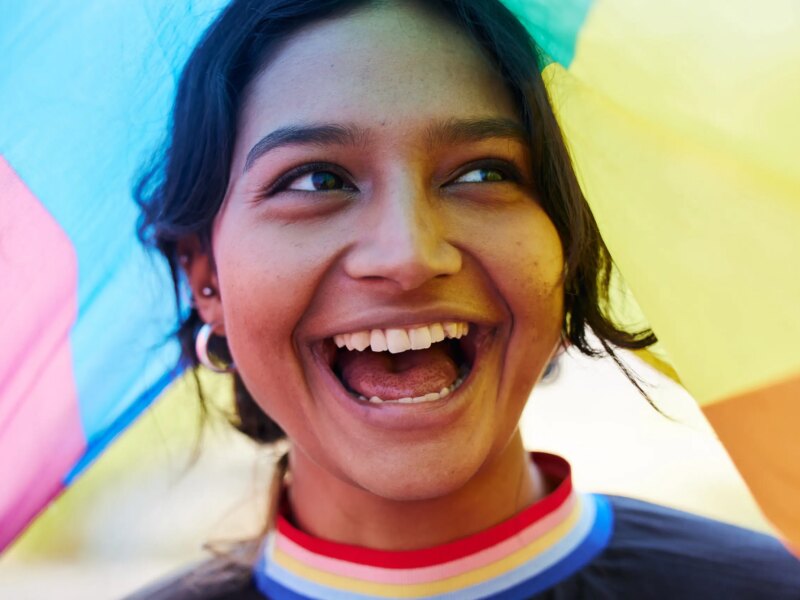Since late October, in the Democratic Republic of Congo, where COVID-19 vaccination rates are the lowest in Africa, more than a million people have listened to messages on a free information hotline, including stories from an 18-year-old student, a 74-year-old teacher and even the president of the country who tell of their own experiences getting the COVID vaccine.
“Don’t hear them saying that when they vaccinate you, you … will suffer a lot,” says Nzeba Kasangidi Petronie, the teacher. While many in her community were hesitant to get vaccinated, she heard messages on the radio about the benefits of the COVID vaccine and other prevention methods, which led her to get her vaccine doses. “You have to go [get vaccinated]. COVID exists. There is the COVID in our province now. If you are not vaccinated, then COVID is going to carry you, you [might] die, so we must prevent it.”
The testimonials are part of a campaign designed by the Johns Hopkins Center for Communication Programs-led Breakthrough ACTION project to get quality COVID-19 information into the hands of people all around the sprawling nation. The messages are accessed by dialing 42502 in the DRC.
“It’s powerful when you hear someone who you respect or someone you have things in common with sharing their own personal stories,” says CCP’s Heather Forrester, who works with the team in the DRC. “People are very afraid of going to the health facility. With the hotline, you can get information from the safety of your home.”
Says Sabin Musinde, who works with CCP partner Viamo on the project: “Most of the time, people have their perceptions of things based on what they hear on the street,” he says. “We empower them with knowledge in the form of key messages, and the testimonials have just reinforced the credibility of the information that we provide, by sharing the experience of those who acted upon that information to decide to get vaccinated.”
As part of President Felix Tshisekedi’s testimonial, after receiving his second dose of the COVID vaccine, he talked about why he feels others should join him in protecting themselves from COVID-19.
“This pandemic slows down the world economy and, in our country, we have had repercussions … because the movement of goods and people has become difficult,” he says. “So, by vaccinating, we protect ourselves and we can work without exposing ourselves to the risk of catching the disease so it is very important to be vaccinated.”
Since COVID began two years ago, more than 86,000 cases and more than 1,300 deaths have been reported in DRC. According to the New York Times vaccine tracker, fewer than 800,000 vaccines have been administered in the nation of 90 million people, with just .5 percent fully vaccinated there.
The health hotline can be accessed by any mobile phone, not only smart phones. Currently, eight testimonials are available, in French, Swahili, Tshiluba, and Lingala. More are being recorded and will be added to the mix.
The testimonials have been well received, Musinde says, with callers hearing an average of 70 to 80 percent of testimonials they listen to.
Musinde says it’s quite difficult to reach across the country and across social classes with mass media. “With 47 percent of people in DRC having access to cell phones, mobile communication is one of the few communication channels that has the potential to reach a lot of people,” he says.





